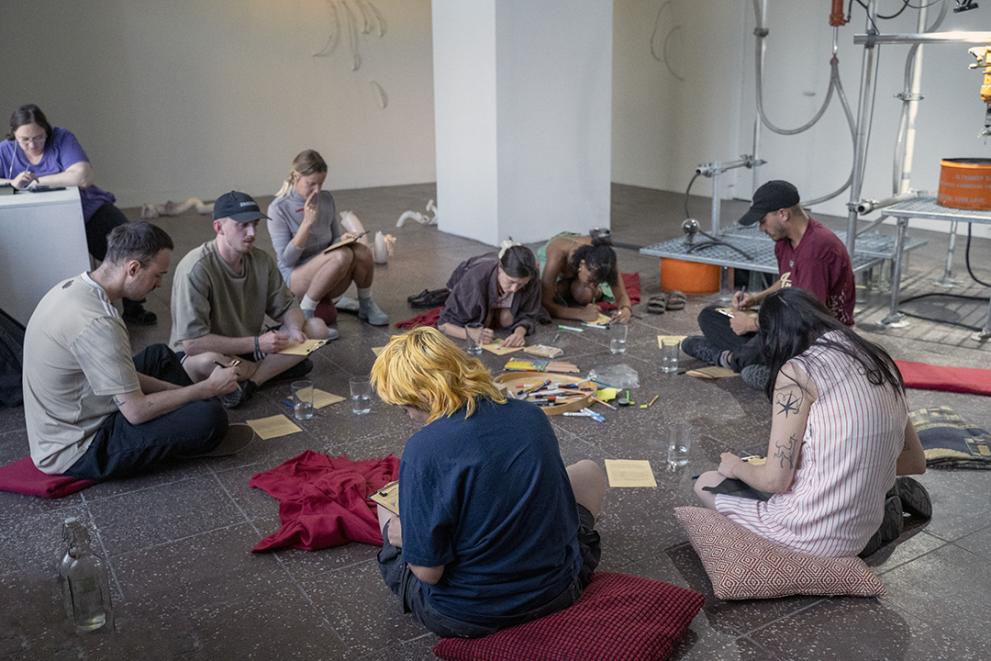On September 7th 2023, during the exhibition Pole der Unzugänglichkeit, part of the series Schwindel – conceptions of (extra)terrestrial worlds between reality and fiction at Galerie im Turm in Berlin, Nonhuman Nonsense was invited to host a Haunted Waters workshop.
Haunted Waters is a project by artist/desing collective Nonhuman Nonsense, in collaboration with Caterina Cacciatori from the European Commission’s JRC water quality lab, which is taking place in the framework of Resonances IV on NaturArchy at JRC Ispra. With The gems of water project1 at the JRC, Caterina Cacciatori and her colleagues developed a measuring tool for local citizens around the world to monitor and collect information for an advanced measurement of organic contaminants present in water.
Contaminants, imperceptible to our vision, yet connected to historical occurrences in the area, and imprisoned in unnatural locations are much like ghosts.
How do we keep living on a damaged planet? We propose a ghost hunt!
In their attempt to make the invisible contaminants visible throughout their project, Nonhuman Nonsense hosted this workshop, guiding participants to enter their bodies, visualise the ghostly contaminants, share their stories and reflecte on what they teach us about our own existence.
And they are still in search of more stories about contaminated water. Please share your story here.
“We are collecting stories, histories and material evidence from around the world about bodies of water that are “haunted” by chemical contamination. Mercury, nitrates, PFAS, drug residues... ghostly contaminants haunt not only our bodies of water, but also the hallways of our internal organs.”
--- Statement by Nonhuman Nonsense

1To learn more about the scientific background and the question of how to become a gem of water, the JRC established The gems of water: a capacity building project aimed at creating a network of local Science Embassies consisting of citizens, non-state actors and research centres working together for a scientifically robust and continuous transfer of water quality data into knowledge and action.
Details
- Publication date
